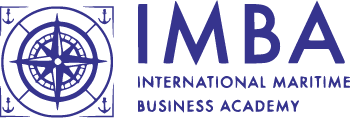PGDM - International Trade & Maritime Law
The sea is vital to human existence – for commerce, navigation routes, and as a major source of natural resources. Legal expertise in the issues surrounding the law in these areas is always in demand. Our Advance PGDM International Trade & Maritime Law will give you an in-depth understanding of the law concerning contracts for the carriage of goods, marine insurance, international trade and law of the sea. Learning from experts with high level academic and practical experience, you will gain specialist knowledge and skills that are highly valued by employers, and open up a range of exciting career opportunities.
Post completion of BBA, students will be awarded a graduation degree along with a certificate from IMBA.
Sri Dev Suman University, Uttarakhand (Affiliation No. 508)
Top-Tier Jobs Guaranteed
Charter Party Analyst
Laytime Analyst
Maritime Lawer
Post Fix Executive
Maritime Consultant
Freight Trader
Project Analyst
Cargo Operator
Demurrage Analyst
Chartering Executive / Manager
Voyage Operator
Our Students Review
Ever since I got to know about the Business aspect of Shipping Industry, I knew I had to enter this field. I waited for almost 1 year and finally the day came when I resigned from my previous job and the very next day I found myself sitting in the IMBA’s admission office. Four months of theory and there I was sitting for interviews with International and domestic shipping companies. All credit goes to the placement cell of IMBA headed by Ms. Neha Kannojiya, who made sure to give us all the opportunities available. Today, I am proudly representing IMBA internationally as an Operations Executive with Sharaf Shipping Agency, Dubai.

Vivek Patel
Shipping Executive Sharaf Shipping Agency (Dubai)I used to work in NBFC firm in surat (Gujarat), I was looking for an opportunity with growth prospects and I got to know about commercial shipping industry and than I came across IMBA.

Janvi Modi
C/P Desk Executive MarcuraI got to know about the background and value of the shipping industry from my UG, but I did not have the adequate practical knowledge to enter this field, that’s when I found IMBA whose curriculum has been prepared by the industry experts themselves us immense opportunities to join the commercial shipping industry in different profiles. My decision proved to be worth it and gave me just the kind of placement I had dreamt of.
I will always be thankful to Neha Ma’am for giving me this opportunity to take career with an International Placement with Transbulk International Shipping.(Dubai)

Sanjita Gupta
Operations Executive Transbulk International Shipping (Dubai)Faculty

Mr. Fabrice Duval

Mr. Manish Srivastava



